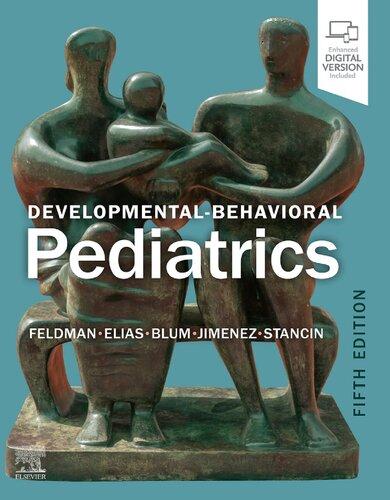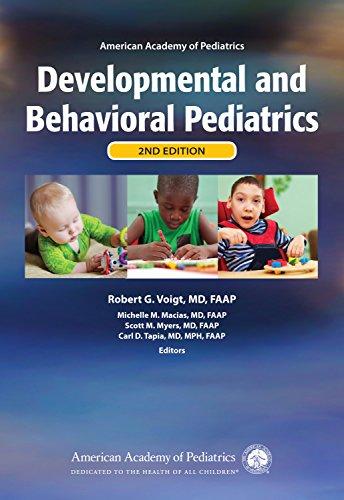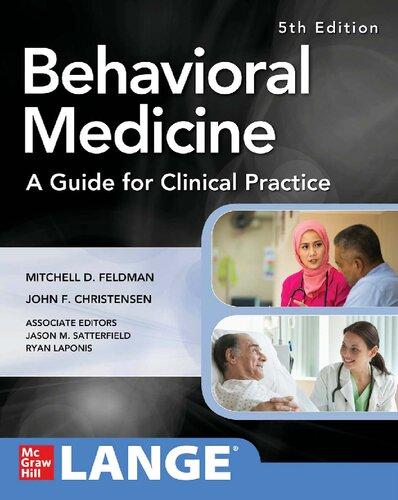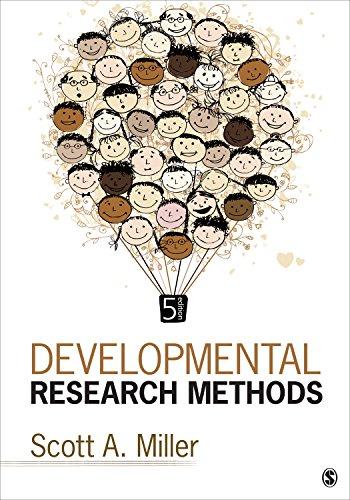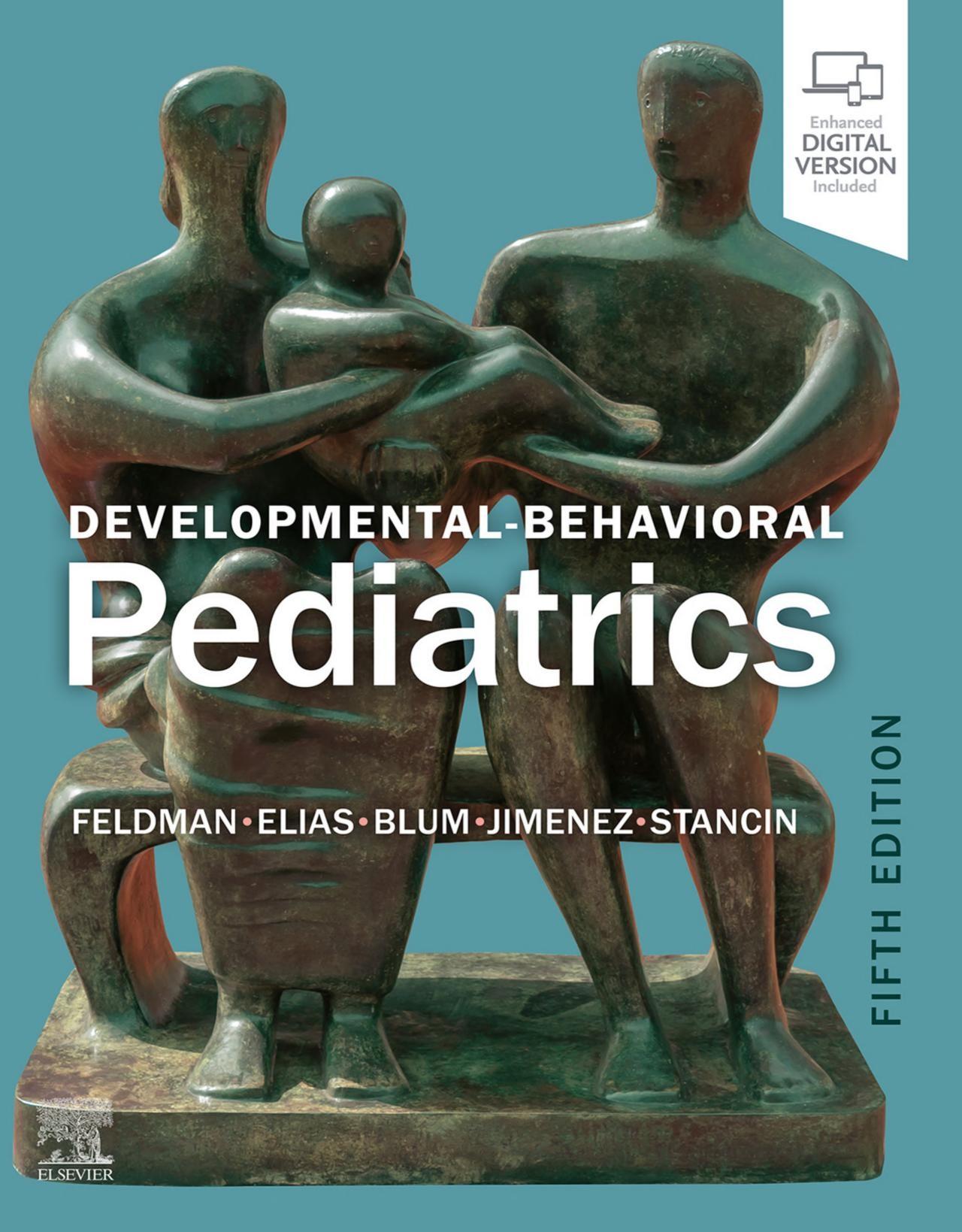CONTRIBUTORS
Boston University School of Medicine Director of Developmental-Behavioral Pediatrics BMC Boston, Massachusetts
Peter Baker II, MD
Associate Professor of Pediatrics and Clinical Genetics & Metabolism
Department of Pediatrics
University of Colorado Children’s Hospital Colorado Aurora, Colorado
Linda G. Bandini, PhD
Healthy Weight Research Network
E.K. Shriver Center
UMass Chan Medical School
Boston, Massachusetts
William J. Barbaresi, MD
Chief, Division of Developmental Medicine
Boston Children’s Hospital Division of Developmental Medicine
Boston Children’s Hospital & Harvard Medical School
T. Berry Brazelton Professor of Pediatrics Harvard Medical School
Boston, Massachusetts
W. Steven Barnett, PhD Graduate School of Education
The State University of New Jersey
Rutgers University New Brunswick, New Jersey
Brenda Bassingthwaite, PhD, BCBA
Associate Professor
Munroe-Meyer Institute University of Nebraska Medical Center Omaha, Nebraska
Brittany S. Bassitt, MD General Pediatrician
Kaiser Permanent Northwest Hillsboro, Oregon
Courtney E. Batt, MD
Assistant Professor of Pediatrics
Section of Adolescent Medicine
University of Colorado School of Medicine Children’s Hospital of Colorado Aurora, Colorado
Rebecca A. Baum, MD
Clinical Professor of Pediatrics
University of North Carolina School of Medicine
Developmental Behavioral Pediatrician
UNC Health
Chapel Hill, North Carolina
Fiona M. Baumer, MD
Assistant Professor of Neurology and of Pediatrics
Stanford University School of Medicine Palo Alto, California
Ronald E. Becker, MD
Assistant Professor of Pediatrics
Harvard Medical School
Assistant in Pediatrics
Boston Children’s Hospital Boston, Massachusetts
Anna Malia Beckwith, MD
Assistant Professor of Pediatrics
Rutgers Robert Wood Johnson Medical School
Section Chief of Developmental Behavioral Pediatrics
Children’s Specialized Hospital New Brunswick, New Jersey
Nathaniel S. Beers, MD, MPA
Children’s National Hospital
HSC Health Care System
Washington, District of Columbia
David C. Bellinger, PhD, MSc
Professor of Neurology
Harvard Medical School
Boston Children’s Hospital Boston, Massachusetts
Amanda E. Bennett, MD, MPH
The Children’s Hospital of Philadelphia Division of Developmental and Behavioral Pediatrics
Philadelphia, Pennsylvania
Kelly Blankenship, DO
Associate Chief Medical Officer for Behavioral Health
Dayton Children’s Hospital Dayton, Ohio
Nathan J. Blum, MD
W.T. Grant Professor of Pediatrics
Perelman School of Medicine
University of Pennsylvania
Chief, Division of Developmental and Behavioral Pediatrics
Children’s Hospital of Philadelphia
Philadelphia, Pennsylvania
Kristen Boog, MA
School of Psychological and Behavioral Sciences
Southern Illinois University Carbondale, Illinois
Renée Boynton-Jarrett, MD, ScD Department of Pediatrics
Boston University School of Medicine Vital Village Community Engagement Network Boston, Massachusetts
Nicholas J.K. Breitborde, PhD, ABPP Department of Psychiatry and Behavioral Health
The Ohio State University Columbus, Ohio
Zoe Brennan-Krohn Staff Attorney
Disability Rights Program of the American Civil Liberties Union San Francisco, California
Annelise Brochier, MPH Research Project Manager Boston Medical Center Department of Pediatrics Boston, Massachusetts
Shalonda Brooks, PhD Nationwide Children’s Hospital Ohio State University Child Development Center Westerville, Ohio
Mariah Brown, BA Pediatric Endocrinology Children’s Hospital Colorado University of Colorado School of Medicine Aurora, Colorado
Michelle R. Brown, PhD Clinical Professor of Psychiatry Department of Psychiatry and Behavioral Sciences
Division of Child and Adolescent Psychiatry Stanford Children’s Health
Stanford University School of Medicine Stanford, California
Sophie Brunt, M Ed Doctoral Student
Department of Human Services School of Education and Human Development University of Virginia Charlottesville, Virginia
Kimberly Burkhart, PhD Clinical Psychologist
Associate Professor of Pediatrics and Psychiatry
Case Western Reserve University School of Medicine
Rainbow Babies and Children’s Hospital Division of Developmental-Behavioral Pediatrics and Psychology Cleveland, Ohio
Nicole R. Bush, PhD
University of California (UCSF) Department of Pediatrics
Division of Developmental Medicine
San Francisco, California
Eric M. Butter, PhD
Nationwide Children’s Hospital Department of Pediatric Psychology and Neuropsychology
Ohio State University Columbus, Ohio
Eliza Buyers, MD
Assistant Professor
Department of Obstetrics and Gynecology
University of Colorado
Anschutz Campus
Pediatric and Adolescent Gynecology
Children’s Hospital Colorado Aurora, Colorado
Caitlin F. Canfield, PhD
Division of Developmental and Behavioral Pediatrics Department of Pediatrics
NYU Grossman School of Medicine
New York, New York
Laura Arnstein Carpenter, PhD
Medical University of South Carolina Charleston, South Carolina
Kaitlyn Cavanaugh, MS, OTR/L, CLC
Occupational Therapist & Certified Lactation Counselor
Children’s Hospital Colorado Highlands Ranch, Colorado
Philip B. Cawkwell, MD
Child and Adolescent Psychiatrist
Bay Area Clinical Associates
Stanford University Palo Alto, California
Diane Chen, PhD
Potocsnak Family Division of Adolescent and Young Adult Medicine
Pritzker Department of Psychiatry and Behavioral Health
Ann & Robert H. Lurie Children’s Hospital of Chicago
Department of Psychiatry and Behavioral Sciences
Department of Pediatrics
Northwestern University Feinberg School of Medicine
Chicago, Illinois
Gayle Chesley, PhD
Children’s Hospital of Philadelphia
Perelman School of Medicine
University of Pennsylvania Philadelphia, Pennsylvania
Marie A. Clark, MD, MPH
Assistant Professor of Pediatrics
Case Western Reserve University School of Medicine
Rainbow Babies and Children’s Hospital
Division of Developmental-Behavioral Pediatrics and Psychology Cleveland, Ohio
Elizabeth Coan, PsyD
Psychologist
Developmental Pediatrics
Denver Fragile X Clinic
Children’s Hospital Colorado
University of Colorado School of Medicine
Aurora, Colorado
Shereen J. Cohen, PhD
Postdoctoral Fellow
MIND Institute
University of California–Davis Davis, California
Cara Coleman, JD, MPH
Director of Public Policy and Advocacy
Family Voices
Lexington, Massachusetts
Sean T. Corbett, MD
Associate Professor
Department of Urology
University of Virginia School of Medicine
Charlottesville, Virginia
DePorres Cormier II, MD
Division of Developmental Pediatrics
Department of Pediatrics
Saint Louis University School of Medicine
SSM Cardinal Glennon Children’s Hospital
Knights of Columbus Developmental Center
St. Louis, Missouri
Claire A. Coyne, PhD
Potocsnak Family Division of Adolescent and Young Adult Medicine
Pritzker Department of Psychiatry and Behavioral Health
Ann & Robert H. Lurie Children’s Hospital of Chicago
Department of Psychiatry and Behavioral Sciences
Northwestern University Feinberg School of Medicine
Chicago, Illinois
Catherine Crouse, MM, MT-BC, NICU-MT, NMT
Master of Music in Music Therapy
Music Therapist-Board Certified Neonatal Intensive Care Music Therapist
Neurologic Music Therapist
Lucile Packard Children’s Hospital Palo Alto, California
Carol Curtin, PhD
Healthy Weight Research Network
E.K. Shriver Center
UMass Chan Medical School Worcester, Massachusetts
Beth Ellen Davis, MD, MPH
Professor of Pediatrics
Division of Neurodevelopmental and Behavioral Pediatrics
University of Virginia Charlottesville, Virginia
Katie Davis, MSN, RN, PHNA-BC Population Health Innovation Institute Institute for H.O.P.E.
The MetroHealth System Cleveland, Ohio
Shanlee Davis, MD
Pediatric Endocrinology University of Colorado School of Medicine Aurora, Colorado
Thomas P. Demaria, PhD
Consultant and Advisor
National Center for School Crisis and Bereavement
Children’s Hospital Los Angeles Los Angeles, California
Allison G. Dempsey, PhD Department of Psychiatry University of Colorado School of Medicine Aurora, Colorado
Katie A. Devine, PhD, MPH
Rutgers Cancer Institute of New Jersey New Brunswick, New Jersey
Mary Beth DeWitt, PhD
Chief, Division of Child Psychology
Dayton Children’s Hospital Dayton, Ohio
Liliane Diab, MD
Assistant Professor
Department of Pediatrics, Section of Nutrition
University of Colorado School of Medicine
Clinical Director
Clinical Nutrition: Growth and Parenting Lifestyle Medicine Clinics Aurora, Colorado
Irene Cihon Dietz, MD Division of Comprehensive Care
Pediatrics
MetroHealth Medical Center
Case Western Reserve University School of Medicine Cleveland, Ohio
Elizabeth Dubow, MD
Assistant Professor, Pediatrics-Neurology Children’s Hospital Colorado University of Colorado Aurora, Colorado
Sarah E. Dubner, MD Instructor
Division of Developmental-Behavioral Pediatrics
Stanford University School of Medicine Stanford, California
John C. Duby, MD, CPE
Wright State University Boonshoft School of Medicine
Dayton Children’s Hospital Dayton, Ohio
Jessica Duis, MD, MS
Assistant Professor of Pediatrics and Genetics Director, Chromosome 15 clinics
Children’s Hospital Colorado University of Colorado Anschutz Medical Campus Aurora, Colorado
Mei Elansary, MD, MPhil
Assistant Professor of Pediatrics
Boston University School of Medicine Attending Physician BMC Boston, Massachusetts
Ellen Roy Elias, MD Director, Special Care Clinic Children’s Hospital Colorado Professor of Pediatrics and Genetics University of Colorado School of Medicine Aurora, Colorado
Janice Enriquez, PhD Associate Clinical Professor of Pediatrics
MIND Institute
UC Davis Health Davis, California
Robert W. Enzenauer, MD, MPH/MSPH Professor of Ophthalmology University of Colorado School of Medicine Aurora, Colorado
Shannon Erisman, PhD
Assistant Professor of Psychiatry and Human Behavior Clinician Educator Alpert Medical School at Brown University Clinical Director Postpartum Day Hospital
Women & Infants Hospital Providence, Rhode Island
Krista Eschbach, MD
Assistant Professor, Pediatrics-Neurology Children’s Hospital Colorado University of Colorado Aurora, Colorado
Jordan Ezell Klein, PhD
Medical University of South Carolina Charleston, South Carolina
Karla K. Fehr, PhD
School of Psychological and Behavioral Sciences
Southern Illinois University Carbondale, Illinois
Heidi M. Feldman, MD, PhD
Ballinger-Swindells Professor of Developmental and Behavioral Pediatrics
Chief, Division of Developmental-Behavioral Pediatrics
Stanford University School of Medicine
Stanford California
Service Chief, Developmental-Behavioral Pediatrics
Stanford Childrens Health
Palo Alto, California
Lauren B. Fishbein, PhD
Department of Child and Adolescent Psychiatry and Behavioral Sciences
The Children’s Hospital of Philadelphia Philadelphia, Pennsylvania
Jason M. Fogler, PhD
Senior Staff Psychologist Co-Director: ADHD Program
Training Director: Leadership Education in Neurodevelopmental & related Disabilities (LEND)
Division of Developmental Medicine, Boston Children’s Hospital
Assistant Professor of Pediatrics & Psychology, Harvard Medical School Boston, Massachusetts
Deborah A. Frank, MD
Founder Grow Clinic for Children Boston Medical Center
Founder and Principal Investigator
Children’s Health Watch
Professor of Child Health and Well-Being
Boston University School of Medicine Boston, Massachusetts
Sandra L. Friedman, MD, MPH Professor of Pediatrics
University of Colorado School of Medicine
Section Head, Developmental Pediatrics
Children’s Hospital Colorado Aurora, Colorado
Sarah L. Friedman, PhD
Research Professor
Department of Psychological and Brain Sciences
The George Washington University Washington, District of Columbia
Mary A. Fristad, PhD, ABPP
Division of Child & Family Psychiatry
Big Lots Behavioral Health Services
Nationwide Children’s Hospital Columbus, Ohio
Nadine Gaab, PhD
Associate Professor of Education
Harvard Graduate School of Education and Associate Professor of Pediatrics
Harvard Medical School
Boston, Massachusetts
Rachel Lee Gilgoff, MD
Senior Clinical and Science Advisor
ACEs Aware Initiative
Office of the California Surgeon General Aurrera Health Group Sacramento, California
R. Emily Gonzalez, PhD
Department of Pediatrics
University of Virginia School of Medicine Charlottesville, Virginia
Julie Good, MD
Clinical Associate Professor
Pediatric Pain Management and Pediatric Palliative Care
Department of Anesthesiology, Perioperative and Pain Medicine (by courtesy, Pediatrics)
Stanford Children’s Health
Stanford University School of Medicine Center for Academic Medicine Stanford, California
Susan Hayden Gray, MD
Associate Professor of Pediatrics
Medical Director of UVA Teen and Young Adult Health Center University of Virginia Charlottesville, Virginia
A. Dawn Greathouse, PhD, BCBA
Pediatric Neurodevelopmental Psychologist
Child Development Center
Nationwide Children’s Hospital
Assistant Professor
The Ohio State University Columbus, Ohio
Randi Hagerman, MD
Developmental Pediatrics
University of California–Davis MIND Institute
Sacramento, California
Eleanore M. Hall, PsyD
Department of Psychiatry
University of Colorado School of Medicine Aurora, Colorado
Howard Hall, PhD, PsyD, BCB Professor of Pediatrics, Psychiatry, and Psychological Sciences
Rainbow Babies & Children’s Hospital
University Hospitals Cleveland Medical Center
Division of Developmental/Behavioral Pediatrics & Psychology Cleveland, Ohio
Bonnie Halpern-Felsher, PhD Professor of Pediatrics, Epdemiology and Population Health, and Psychiatry and Behavioral Sciences
Division of Adolescent Medicine
Department of Pediatrics
Stanford University Palo Alto, California
Sarah A. Hamilton, MD
Department of Psychiatry and Behavioral Health
The Ohio State University Columbus, Ohio
Robin L. Hansen, MD Professor of Pediatrics Emerita MIND Institute
University of California Davis School of Medicine Davis, California
Sandra G. Hassink, MD, MSc
Healthy Weight Research Network Emeritus Associate Professor of Pediatrics
Nemours Children’s Hospital Wilmington, Delaware
Marissa Hauptman, MD, MPH Associate Director
Pediatric Environmental Health Center and Region 1 New England Pediatric Environmental Health Specialty Unit (PEHSU)
Boston Children’s Hospital Boston, Massachusetts
Assistant Professor, Harvard Medical School Boston, Massachusetts
Katheleen Hawes, PhD, PMH-CNS, BC Assistant Professor of Pediatrics, Clinician Educator
Alpert Medical School at Brown University Women & Infants Hospital Providence, Rhode Island
Rebecca A. Hazen, PhD
Division of Developmental and Behavioral Pediatrics & Psychology
Rainbow Babies and Children’s Hospital University Hospitals
Cleveland Medical Center
Department of Pediatrics
Case Western Reserve University Cleveland, Ohio
Albert Hergenroeder, MD
Professor of Pediatrics
Pediatrics-Adolescent Medicine and Sports Medicine
Chief, Adolescent Medicine and Sports Medicine
Baylor College of Medicine
Texas Children’s Hospital Houston, Texas
Jenniffer Herrera, MD
Assistant Professor of Pediatrics
Division of Neurodevelopmental and Behavioral Pediatrics
University of Virginia Charlottesville, Virginia
Francis Hickey, MD
Children’s Hospital Colorado Aurora, Colorado
Pamela High, MD
Professor of Pediatrics, Clinician Educator
Alpert Medical School at Brown University
Director, Developmental Behavioral Pediatrics
Hasbro Children’s Hospital
Providence, Rhode Island
Matthew C. Hocking, PhD
Pediatric Psychologist
Division of Oncology
Children’s Hospital of Philadelphia
Department of Psychiatry
Perelman School of Medicine
University of Pennsylvania Philadelphia, Pennsylvania
Cody A. Hostutler, PhD
Clinical Assistant Professor of Pediatrics
The Ohio State University
Pediatric Psychologist
Nationwide Children’s Hospital Columbus, Ohio
Susan Howell, MS, CGC
Genetic Counselor
Developmental Pediatrics
Denver Fragile X Clinic
Children’s Hospital Colorado
University of Colorado School of Medicine
Aurora, Colorado
Lynne C. Huffman, MD
Professor of Pediatrics
Division of Developmental-Behavioral Pediatrics
Stanford University School of Medicine
Stanford, California
Abby Hughes-Scalise, PhD
Clinical Psychology PsyD Program Augsburg University Minneapolis, Minnesota
Susan L. Hyman, MD
Healthy Weight Research Network University of Rochester Medical Center Rochester, New York
Kida Ingram, PhD Psychologist Development Medicine Center Instructor Harvard Medical School Boston, Massachusetts
Sandhyaa Iyengar, MD MPH Practice-Based Scholar
The Center for Violence Prevention
Children’s Hospital of Philadelphia
The Perelman School of Medicine
The University of Pennsylvania Philadelphia, Pennsylvania
Carissa R. Jackel, MD
Assistant Professor of Clinical Pediatrics Perelman School of Medicine University of Pennsylvania Associate Fellowship Program Director Children’s Hospital of Philadelphia Philadelphia, Pennsylvania
Bayan Jalalizadeh, MD
Child, Adolescent, and Adult Psychiatrist
Children’s Health Council Palo Alto, California
Manuel E. Jimenez, MD, MS
Associate Professor of Pediatrics and Family Medicine and Community Health
Rutgers Robert Wood Johnson Medical School
Attending Developmental and Behavioral Pediatrician
Children’s Specialized Hospital New Brunswick, New Jersey
Megan M. Julian, PhD Department of Psychiatry University of Michigan Ann Arbor, Michigan
Colleen Kahn, MA-MFT-AT, MA-ATR-BC
Marriage and Family Therapy and Art Therapy Board Certified Art Therapist
Lucile Packard Children’s Hospital Palo Alto, California
Robert D. Keder, MD
Connecticut Children’s Medical Center University of Connecticut School of Medicine Farmington, Connecticut
Brooks Keeshin, MD University of Utah Salt Lake City, Utah
M. Kathleen Kelly, PhD, PT
Associate Professor University of Pittsburgh School of Health & Rehabilitation Sciences Pittsburgh, Pennsylvania
Karen Kelminson, MD Children’s Hospital Colorado Aurora, Colorado
Mary A. Khetani, ScD, OTR/L
Departments of Occupational Therapy and Disability and Human Development University of Illinois Chicago, Illinois
Bridget Kiley, MSc, LMCH
Arlington Youth Counseling Center Cambridge, Massachusetts
Judy Lu Kim, MD
Assistant Professor Section of Transition Medicine Department of Medicine Department of Family and Community Medicine Baylor College of Medicine Houston, Texas
Patricia A. Kinser, PhD, WHNP-BC, RN Professor Virginia Commonwealth University School of Nursing Richmond, Virginia
Michael W. Kirkwood, PhD, ABPP-CN Director
Rehabilitation Psychology & Neuropsychology Department of Rehabilitation Children’s Hospital Colorado Professor, Department of Physical Medicine & Rehabilitation
University of Colorado School of Medicine Aurora, Colorado
John R. Knight, Jr., MD
Founder and Director Emeritus Center for Adolescent Substance Use & Addiction Research (CeASAR) Department of Pediatrics
Boston Children’s Hospital Boston, Massachusetts
Associate Professor Pediatrics (Ret.)
Harvard Medical School Boston, Massachusetts
Holly Knotowicz, MS, CCC-SLP
Speech Language Pathologist Picky Eaters Anonymous, LLC Portland, Maine
Aaina Kochhar, MD
Assistant Professor Section of Genetics & Metabolism Department of Pediatrics University of Colorado Anschutz Medical Campus Aurora, Colorado
Anson J. Koshy, MD, MBE
Associate Professor
McGovern Center for Humanities and Ethics McGovern Medical School Houston, Texas
Mary C. Kral, PhD Professor of Pediatrics
Medical University of South Carolina Charleston, South Carolina
Nancy F. Krebs, MD, MS Professor of Pediatrics Head Section of Nutrition
Associate Vice Chairman, Academic Affairs, Department of Pediatrics
University of Colorado School of Medicine Aurora, Colorado
Casey E. Krueger, PhD
Clinical Assistant Professor (Affiliated) Division of Developmental-Behavioral Pediatrics Department of Pediatrics
Stanford University School of Medicine
Palo Alto, California
Jeremy Kruger, MD Department of Psychiatry and Behavioral Sciences
University of Washington Seattle, Washington
Sara Kupzyk, PhD, LP, BCBA-D
Assistant Professor University of Nebraska at Omaha Omaha, Nebraska
Gary Kwok, PhD
Rutgers Cancer Institute of New Jersey New Brunswick, New Jersey
Philip J. Landrigan, MD, MSc Director
Program for Global Public Health and the Common Good Boston College Chestnut Hill, Massachusetts
Austin Larson, MD
Assistant Professor of Pediatrics and Clinical Genetics & Metabolism
Department of Pediatrics, Section of Clinical Genetics and Metabolism
University of Colorado Children’s Hospital Colorado Aurora, Colorado
Adrienne Lazaro, MS
Department of Pediatrics
Division of Adolescent Medicine
Stanford University Palo Alto, California
Michele Ledesma, MD
Assistant Professor of Pediatrics
New York Medical College
Developmental & Behavioral Pediatrics
Boston Children’s Health Physicians
Maria Fareri Children’s Hospital Valhalla, New York
Stephen S. Leff, PhD
Co-Director
The Center for Violence Prevention Children’s Hospital of Philadelphia
The Perelman School of Medicine
The University of Pennsylvania Philadelphia, Pennsylvania
John E. Leikauf, MD
Clinical Assistant Professor
Child and Adolescent Psychiatry and Child Development
Psychiatry and Behavioral Sciences
Stanford University Palo Alto, California
Mary L. O’Connor Leppert, MB BCH
Kennedy Krieger Institute
Johns Hopkins University School of Medicine Baltimore, Maryland
Bethany Leraas, MA
School of Psychological and Behavioral Sciences
Southern Illinois University Carbondale, Illinois
Irene M. Loe, MD
Division of Developmental-Behavioral Pediatrics
Department of Pediatrics
Stanford University School of Medicine Stanford, California
Julie C. Lumeng, MD
Department of Pediatrics
University of Michigan
Ann Arbor, Michigan
Michelle M. Macias, MD
Division of Developmental-Behavioral Pediatrics
Department of Pediatrics
Medical University of South Carolina Charleston, South Carolina
Dawn M. Magnusson, PT, PhD
Department of Physical Medicine and Rehabilitation
University of Colorado Anschutz Medical Campus Aurora, Colorado
Fatima Malik, MD
Clinical Assistant Professor
Department of Pediatrics
University Hospitals Connor Whole Health Rainbow Babies and Children’s Hospital Cleveland, Ohio
Kathryn Mancini, PhD
MetroHealth Medical Center
Department of Psychiatry
Case Western Reserve University School of Medicine Cleveland, Ohio
Kilby Mann, MD
Department of Physical Medicine and Rehabilitation
University of Colorado Children’s Hospital Colorado Aurora, Colorado
Melissa Marquardt, PhD
Licensed Psychologist Independent Practice Oregon Health Sciences University Portland, Oregon
Raman Marwaha, MD
Child/Adolescent Psychiatrist MetroHealth System Director
MetroHealth Psychiatry Residency Program Assistant Professor of Psychiatry
Case Western Reserve University School of Medicine Cleveland, Ohio
Micah Mazurek, PhD Professor
Department of Human Services
School of Education and Human Development University of Virginia Charlottesville, Virginia
Susan H. McDaniel, PhD
Dr. Laurie Sands Distinguished Professor of Families & Health
Departments of Psychiatry & Family Medicine
University of Rochester School of Medicine & Dentistry
Rochester, New York
Eric McDonald, MD
Child and Adolescent Psychiatry
The Permanente Medical Group
Santa Clara, California
Laura Joan McGuinn, MD
Professor of Pediatrics
Thomas Lowder Chair in DevelopmentalBehavioral Pediatrics
Division of Developmental-Behavioral Pediatrics
Department of Pediatrics
The University of Alabama School of Medicine Birmingham, Alabama
Naomi J.L. Meeks, MD
Assistant Professor
Section of Genetics & Metabolism
Department of Pediatrics
University of Colorado Anschutz Medical Campus Aurora, Colorado
Robyn Mehlenbeck, PhD, ABPP
George Mason University Center for Psychological Services
Fairfax, Virginia
Alan L. Mendelsohn, MD
Professor of Pediatrics and Population Health Division of Developmental and Behavioral Pediatrics
Department of Pediatrics
NYU Grossman School of Medicine
New York, New York
Cheryl Messick, PhD
Department of Communication Science and Disorders
School of Health and Rehabilitation Sciences
University of Pittsburgh Pittsburgh, Pennsylvania
Jonathan W. Mink, MD, PhD
Endowed Professor in Pediatric Neurology Professor of Neurology, Neuroscience, and Pediatrics
University of Rochester School of Medicine & Dentistry
Rochester, New York
Laura J. Mintz, MD, PhD
Assistant Professor
CWRU School of Medicine
MetroHealth Medical Center
Cleveland, Ohio
Susan Mizner
Director
Disability Rights Program of the American Civil Liberties Union
San Francisco, California
Sonia A. Monteiro, MD Department of Pediatrics
Section of Developmental Pediatrics
Baylor College of Medicine
Meyer Center for Developmental Pediatrics & Autism
Texas Children’s Hospital Houston, Texas
Deborah Mood, PhD Department of Pediatrics University of Colorado Denver Aurora, Colorado
Jessica Moore, PhD
Assistant Professor Departments of Pediatrics and Psychiatry University of Rochester School of Medicine & Dentistry Rochester, New York
Sara W. Moyer, RN, BS Virginia Commonwealth University School of Nursing Richmond, Virginia
Claudia M. Mueller, MD, PhD
Associate Professor Department of Surgery Stanford University Stanford, California
Christina Mulé, PhD, NCSP
Assistant Professor
Division of Developmental and Behavioral Pediatrics
Department of Pediatrics, University of Rochester School of Medicine & Dentistry
Assistant Professor, Division of Developmental and Behavioral Pediatrics
Department of Pediatrics Tufts University School of Medicine Boston, Massachusetts
Tiffany Munzer, MD Department of Pediatrics University of Michigan Ann Arbor, Michigan
Nancy Murphy, MD Department of Pediatrics School of Medicine
University of Utah Salt Lake City, Utah
Caitlin B. Murray, PhD Department of Anesthesiology and Pain Medicine
University of Washington School of Medicine & Seattle Children’s Hospital Seattle, Washington
Marsheena Murray, PhD, ABPP
MetroHealth Medical Center Cleveland, Ohio
Brittany R. Myers, PhD Pediatric Psychologist
MetroHealth System
Assistant Professor of Psychiatry
Case Western Reserve University School of Medicine Cleveland, Ohio
Cy Nadler, PhD Director of Autism Services
Division of Developmental and Behavioral Health
Children’s Mercy Kansas City
Associate Professor of Pediatrics
University of Missouri-Kansas City School of Medicine
Kansas City, Missouri
Robert Needlman, MD
MetroHealth Medical Center Department of Pediatrics
Case Western Reserve University School of Medicine Cleveland, Ohio
Jeffrey Okamoto, MD
John A. Burns School of Medicine
University of Hawaii–Manoa
Kapiolani Medical Center for Women and Children Honolulu, Hawaii
Joyce Oleszek, MD
Department of Physical Medicine and Rehabilitation
University of Colorado Children’s Hospital Colorado Aurora, Colorado
Sara O’Rourke, MOT, OTR/L, BCP
Outpatient Occupational Therapy Program Manager
Nationwide Children’s Hospital Columbus, Ohio
Judith A. Owens, MD, MPH
Professor of Neurology
Harvard Medical School
Co-Director of Sleep Medicine
Boston Children’s Hospital Waltham, Massachusetts
Padmini Palat, MD, MPH
Associate Professor
University of Colorado
Department of Pediatrics
Section of Neurology
Children’s Hospital Colorado Aurora, Colorado
Tonya M. Palermo, PhD
Department of Anesthesiology and Pain Medicine
University of Washington School of Medicine
Seattle Children’s Research Institute
Seattle, Washington
Craig J. Parris, MS, APRN, PMHNP-BC, FNP-C
Department of Psychiatry and Behavioral Health
The Ohio State University Columbus, Ohio
Jessica Patel, PhD
Clinical Assistant Professor (Affiliated)
Division of Developmental-Behavioral Pediatrics
Department of Pediatrics
Stanford University School of Medicine
Palo Alto, California
Silvia Pereira-Smith, MD
Division of Developmental-Behavioral Pediatrics
Department of Pediatrics
Medical University of South Carolina Charleston, South Carolina
Hannah Perrin, MD University of California (UCSF) Department of Pediatrics
Division of Developmental Medicine
San Francisco, California
Megan Honor Pesch, MD, MS Division of Developmental and Behavioral Pediatrics
Department of Pediatrics
University of Michigan Medical School
Ann Arbor, Michigan
Jaime W. Peterson, MD, MPH
Department of Pediatrics
Oregon Health and Science University
Portland, Oregon
Randall Phelps, MD, PhD
Developmental and Behavioral Pediatrician
Associate Professor of Pediatrics
Child Development and Rehabilitation Center
Institute on Development and Disability
Oregon Health and Science University
Eugene, Oregon
Laura Pickler, MD, MPH
Associate Professor University of Colorado Aurora, Colorado
Aaron Powell, MD Pediatric Physiatrist Department of Rehabilitation Children’s Hospital Colorado Assistant Professor
Department of Physical Medicine and Rehabilitation University of Colorado School of Medicine Aurora, Colorado
Lisa Prock, MD, MPH Director Developmental Medicine Center
Boston Children’s Hospital Boston Assistant Professor
Harvard Medical School Boston, Massachusetts
Michael A. Puente, MD
Assistant Professor of Ophthalmology
University of Colorado School of Medicine Aurora, Colorado
Marianne Pugatch, PhD, LICSW Postdoctoral Fellow
Clifford Attkisson Clinical Services Research Training Program (T-32) Division of Adolescent and Young Adult Medicine
Department of Pediatrics
Benioff Children’s Hospital University of California, San Francisco Department of Psychiatry and Behavioral Sciences
Weill Institute for Neurosciences University of California San Francisco, California
Jamie T. Rabot, MD Child Development and Rehabilitation Center Institute on Development and Disability
Oregon Health and Science University Eugene, Oregon
Lisa Ramirez, PhD, ABPP Department of Child and Adolescent Psychiatry and Psychology, The MetroHealth System Department of Psychiatry
Case Western Reserve University School of Medicine Cleveland, Ohio
Leonard A. Rappaport, MD, MS Emeritus Chief Division of Developmental Medicine
Boston Children’s Hospital
Mary Deming Scott Professor of Pediatrics
Harvard Medical School
Boston, Massachusetts
Jennifer M. Rathbun, MD, MA
Clinical Assistant in Psychiatry
Supervisor, Child & Adolescent Psychiatry Training Program
Massachusetts General Hospital
Clinical Instructor in Psychiatry
Harvard Medical School
Boston, Massachusetts
Karen Ratliff-Schaub, MD, MBOE Children’s Hospital, Prisma Health System
Clinical Associate Professor of Pediatrics
University of South Carolina College of Medicine, Greenville Greenville, South Carolina
Shelly Reggiani, EdD
North Clackamas School District Equity and Instructional Services
Clackamas, Oregon
Lewis and Clark College
Graduate School of Education & Counseling Portland, Oregon
Marie Reilly, MD
Developmental Behavioral Pediatrician
Developmental Medicine Center
Boston Children’s Hospital Boston, Massachusetts
Dillon Reitmeyer, MSW
Rutgers School of Social Work
New Brunswick, New Jersey
Bibiana Restrepo, MD
Associate Clinical Professor of Pediatrics
MIND Institute
UC Davis Health Davis, California
Luis A. Rivas Vazquez, BS
Research Assistant II Department of Pediatrics (Division of General Pediatrics)
Oregon Health & Science University Portland, Oregon
Paul M. Robins, PhD
Children’s Hospital of Philadelphia Perelman School of Medicine
University of Pennsylvania Philadelphia, Pennsylvania
Erin Roby, PhD
Division of Developmental and Behavioral Pediatrics
Department of Pediatrics
NYU Grossman School of Medicine
New York, New York
Nancy J. Roizen, MD
Professor of Pediatrics
Case Western Reserve University School of Medicine
Rainbow Babies and Children’s Hospital
Division of Developmental-Behavioral Pediatrics and Psychology Cleveland, Ohio
Rosmary Ros-DeMarize, PhD
Division of Developmental-Behavioral Pediatrics
Department of Pediatrics
Medical University of South Carolina Charleston, South Carolina
Erica Fornaris Rouch, PhD
Assistant Professor Department of Human Services
School of Education and Human Development University of Virginia Charlottesville, Virginia
Suzanne Cushwa Rusnak, MEd, MSSA, LSW
Mindfulness Coordinator
Connor Whole Health
University Hospitals Independent Mindfulness Teacher, Coach Consultant Cleveland, Ohio
Afiya Sajwani, BA
Potocsnak Family Division of Adolescent and Young Adult Medicine
Ann & Robert H. Lurie Children’s Hospital of Chicago Chicago, Illinois
Amy L. Salisbury, PhD, RN, PMH-CNS, BC
Professor and Associate Dean for Research, Scholarship, and Innovation
Clinical Nurse Specialist, Child & Family Psychiatry
Virginia Commonwealth University, School of Nursing Richmond, Virginia
Benjamin W. Sanders, MD, MSPH, MS
Department of Pediatrics (Division of General Pediatrics)
Oregon Health & Science University
Portland, Oregon
Ishani Sandesara, MD
Division of Hospitalist, Pediatrics Hospice, and Palliative Medicine
Internal Medicine and Pediatrics
University of Michigan School of Medicine
Ann Arbor, Michigan
Kourtney Santucci, MD
Assistant Professor Department of Pediatrics
University of Colorado School of Medicine Aurora, Colorado
Ellin K. Scholnick, Ph.D
Professor Emerita
University of Maryland College Park, Maryland
David J. Schonfeld, MD
Director
National Center for School Crisis and Bereavement
Children’s Hospital Los Angeles
Professor of Clinical Pediatrics
Keck School of Medicine
University of Southern California Los Angeles, California
Alison Schonwald, MD
Department of Pediatrics
Cambridge Health Alliance
Associate Professor
Harvard Medical School
Cofounder
Touchstone Neurodevelopmental Center Woburn, Massachusetts
Justin Charles Schwartz, MD
Developmental-Behavioral Pediatrician
Associate Professor of Pediatrics
Division of Developmental-Behavioral Pediatrics
Department of Pediatrics
The University of Alabama School of Medicine Birmingham, Alabama
Brittany L. Schwarz, MD
Johns Hopkins University School of Medicine
Kennedy Krieger Institute
Bloomberg Children’s Center Baltimore, Maryland
Tina Scott-Mordhorst, MD
Clinical Professor
University of Nebraska Medical Center Omaha, Nebraska
Kylie M.L. Seeley, MD, MPH
Stanford School of Medicine
Palo Alto, California
Emily K. Shabason, MD
Attending Physician
Division of Developmental and Behavioral Pediatrics
Children’s Hospital of Philadelphia Philadelphia, Pennsylvania
Laura A. Shaffer, PhD, ABPP
Department of Pediatrics
University of Virginia School of Medicine Charlottesville, Virginia
Jeffrey D. Shahidullah, PhD
Assistant Professor of Psychiatry and Behavioral Sciences
Dell Medical School
University of Texas–Austin
Pediatric Psychologist
Developmental and Behavioral Pediatrics
Dell Children’s Medical Center Austin, Texas
Emily Shelkowitz, MD
Fellow in Clinical Genetics & Metabolism
Department of Pediatrics
Section of Clinical Genetics and Metabolism
Children’s Hospital Colorado University of Colorado Aurora, Colorado
Jaclyn A. Shepard, PsyD
Associate Professor University of Virginia School of Medicine
Behavioral Medicine Center
Department of Psychiatry & Neurobehavioral Sciences Charlottesville, Virginia
Kevin M. Simon, MD
Attending Psychiatrist, Department of Psychiatry & Behavioral Science
Adolescent Substance Use & Addiction Program (ASAP)
Developmental Medicine Center, Boston
Children’s Hospital Brookline, Massachusetts Instructor in Psychiatry Harvard Medical School Boston, Massachusetts
Kristen Slaymaker, DO
Developmental Pediatrics
Children’s Hospital Colorado University of Colorado School of Medicine Aurora, Colorado
Peter J. Smith, MD, MA
Associate Professor of Pediatrics
Section of Developmental and Behavioral Pediatrics
University of Chicago Chicago, Illinois
Barbara Sourkes, PhD
Professor
Department of Pediatrics
Stanford University School of Medicine
John A. Kriewall and Elizabeth A. Haehl Director, Palliative Care Program
Lucile Packard Children’s Hospital Stanford
Palo Alto, California
Leslie Speer, PhD, BCBA, NCSP
MetroHealth Medical Center
Center Case Western Reserve University Cleveland, Ohio
Emily M. Spelbrink, MD, PhD
Stanford University School of Medicine
Palo Alto, California
Adiaha Spinks-Franklin, MD, MPH
Division of Developmental Pediatrics
Department of Pediatrics
Baylor College of Medicine Houston, Texas
Deborah M. Spitalnik, PhD
The Boggs Center on Developmental Disabilities
Professor of Pediatrics and Family Medicine and Community Health
Rutgers Robert Wood Johnson Medical School
New Brunswick, New Jersey
Margaret Stager, MD Professor CWRU School of Medicine
MetroHealth Medical Center Cleveland, Ohio
Terry Stancin, PhD, ABPP Chief of Psychology Director, Child & Adolescent Psychiatry & Psychology
The MetroHealth System
Professor, Departments of Psychiatry Pediatrics, & Psychological Sciences Case Western Reserve University Cleveland, Ohio
Meg Stanger, MS, PT, PCS
Manager of Occupational Therapy and Physical Therapy
UPMC Children’s Hospital of Pittsburgh Pittsburgh, Pennsylvania
Walter H. Stearns, MD
Department of Psychiatry and Behavioral Health
The Ohio State University Columbus, Ohio
Terri Stillwell, MD, MPH
Division of Pediatric Infectious Diseases
Department of Pediatrics
University of Michigan Medical School
Ann Arbor, Michigan
Stephanie K. Takamatsu, PhD
Department of Psychiatry
University of Colorado School of Medicine Aurora, Colorado
Nicole Tartaglia, MD
Developmental Pediatrics
Denver Fragile X Clinic
Children’s Hospital Colorado University of Colorado School of Medicine Aurora, Colorado
Talia Thompson, PhD
Developmental Pediatrics
Children’s Hospital Colorado University of Colorado School of Medicine Aurora, Colorado
Sarah J. Tlustos, PhD, ABPP-CN Pediatric Neuropsychologist Department of Rehabilitation
Children’s Hospital Colorado Assistant Professor Department of Physical Medicine and Rehabilitation
University of Colorado School of Medicine Aurora, Colorado
Eric Tridas, MD
Medical Director (retired) of the Tridas Center for Child Development Tampa, Florida
Paige J. Trojanowski, PhD
George Mason University Center for Psychological Services Fairfax, Virginia
Elizabeth Troy, MD
Assistant Professor
University of Colorado Department of Pediatrics
Section of Neurology
Children’s Hospital Colorado Aurora, Colorado
Megan E. Tudor, PhD
Assistant Clinical Professor of Pediatrics
Licensed Clinical Psychologist
MIND Institute
University of California–Davis Davis, California
Doris Valenzuela-Araujo, MD
Department of Pediatrics
Oregon Health and Science University
Portland, Oregon
Amanda Van Scoyoc
Community Faculty Member
Yale Child Study Center
New Haven, Connecticut
Douglas L. Vanderbilt, MD
Professor of Clinical Pediatrics (Educational Scholar)
Keck School of Medicine of University of Southern California
Children’s Hospital of Los Angeles Los Angeles, California
Jessica VanOrmer Simpson, PhD
MetroHealth Medical Center
Case Western Reserve University Cleveland, Ohio
Robert G. Voigt, MD
Department of Pediatrics
Section of Developmental Pediatrics
Baylor College of Medicine
Meyer Center for Developmental Pediatrics & Autism
Texas Children’s Hospital Houston, Texas
Christine Waanders, PhD
Practice-Based Scholar
The Center for Violence Prevention
Children’s Hospital of Philadelphia Philadelphia, Pennsylvania
Kate E. Wallis, MD, MPH
Division of Developmental-Behavioral Pediatrics
Children’s Hospital of Philadelphia
Department of Pediatrics
Perelman School of Medicine at the University of Pennsylvania Philadelphia, Pennsylvania
Laura Weissman, MD
Assistant Professor in Pediatrics
Harvard Medical School
Attending Physician
Division of Developmental Medicine
Boston Children’s Hospital
Boston, Massachusetts
Carol Weitzman, MD
Co-Director
Autism Spectrum Center
Boston Children’s Hospital
Boston, Massachusetts
Kristen Wigby, MD
Genetics, Rady Children’s Hospital
San Diego, California
Breanna M. Winder-Patel, PhD
Assistant Clinical Professor of Pediatrics
Licensed Clinical Psychologist
MIND Institute
University of California–Davis Davis, California
Larry Wissow, MD
Department of Psychiatry and Behavioral Sciences
University of Washington Seattle, Washington
Kara K. Wright, MD, MPH
Associate Clinical Professor
Volunteer, Department of Pediatrics
University of California–San Francisco
Pediatrician/Consultant
Tenderloin Community School
Bay Area Women’s and Children’s Center
San Francisco, California
Michele Yang, MD
Associate Professor, Department of Pediatrics and Neurology
University of Colorado Denver
Children’s Hospital Colorado
Aurora, Colorado
Angela Yarnell Bonino, PhD, CCC-A University of Colorado Boulder Department of Speech, Language, and Hearing Sciences
Boulder, Colorado
Mary Yarus, M Ed, LDT, CALT
Dyslexia Specialist
Region 4 Education Service Center
Houston, Texas
Ann Ming Yeh, MD
Clinical Associate Professor
Department of Pediatrics
Division of of Gastroenterology, Hepatology, and Nutrition
School of Medicine, Stanford University
Palo Alto, California
Musa Yilanli, MD
Division of Child & Family Psychiatry
Big Lots Behavioral Health Services
Nationwide Children’s Hospital Columbus, Ohio
Samuel H. Zinner, MD Professor of Pediatrics
University of Washington School of Medicine
Developmental-Behavioral Pediatrician
Seattle Children’s Hospital Seattle, Washington
Marcia Zorrilla, DrPH, MPH Division of Adolescent Medicine Department of Pediatrics Stanford University Palo Alto, California
Barry Zuckerman, MD Professor and Chair Emeritus of Pediatrics Boston University School of Medicine Boston, Massachusetts
Katharine E. Zuckerman, MD, MPH Department of Pediatrics (Division of General Pediatrics) Oregon Health & Science University Portland, Oregon
Lucas Zullo, PhD University of California–Los Angeles Los Angeles, California
Welcome to the fifth edition of Developmental-Behavioral Pediatrics. As editors, we have attempted to ensure that the new version maintains the high standards of the previous four editions. We are humbled as we recognize that, for the first time, none of the editors of this textbook served as editors for the first edition of Developmental-Behavioral Pediatrics, published in 1983. We recognize and thank all the previous editors and authors whose fine contributions to earlier versions helped to create and define the field of developmentalbehavioral pediatrics.
In the almost 40 years since the first edition of this textbook was published, developmental-behavioral pediatrics has evolved with enhanced theories, important scientific discoveries, increasing prevalence of developmental and behavioral conditions, new interventions, and our improved understanding of important influences on outcomes. We sought to reflect these profound changes with a new organization and new chapters in the book. The book begins with a new section on the theoretical foundations of developmental-behavioral pediatrics care and research. The section on life stages has a new chapter on important considerations for the transition to adulthood for all adolescents. The sections on environmental and on biologic influences have been expanded and updated to include more information on parenting, adverse childhood experiences, genetics, and brain injury and to address racism and bias in healthcare settings. The coverage of developmental, behavioral, and emotional conditions and the developmental and behavioral outcomes of physical health conditions has been expanded to include new chapters on suicide and self-harm, stress disorders, movement disorders, brain tumors, and sexuality in children with developmental disabilities. We open each chapter with a pithy vignette, designed to excite the reader’s interest and to humanize the conditions and issues we address.
Throughout the book, we have highlighted the interprofessional care required to optimize outcomes for children with developmental and behavioral conditions and their families. An interprofessional focus is reflected in our editor group that now includes Terry Stancin PhD, a leading psychologist in the field of developmental-behavioral pediatrics, complementing the two returning editors, Heidi Feldman MD, PhD and Ellen Elias MD, and the other two new editors, Nathan Blum MD and Manuel Jimenez MD, MS. Where appropriate, the chapters are authored by individuals from more than one professional discipline. With an interprofessional focus, we also greatly expanded the section on assessment and measurement to include chapters on evaluation of children who are minimally verbal, evaluation of emotions and behaviors, neuropsychological assessment, and assessment of adaptive functioning. Another new chapter discusses approaches to integrating data across different assessments and managing uncertainty. Similar expansion has occurred in the management section with new chapters on counseling and readiness
to change, a common factors approach to counseling, applied behavior analysis, rehabilitation services, community-based interventions, and endocrine and gynecological care for youth with severe disabilities. As in the previous edition, we end with a section on systems issues, and in the final chapter we, the editors, reflect on implications of the right to belong and the right to be different for interprofessional care for children with developmental and behavioral conditions.
Given the emphasis on interprofessional care throughout the book, we hope that this volume will meet the needs of a varied and interprofessional readership. For the specialist in developmental-behavioral pediatrics providing clinical care or in-training, it should provide a reliable resource for the best information available in this broad and complex field. For clinicians in primary care, psychology, psychiatry, education, nursing, rehabilitation therapies, social work, and other professions, the book offers comprehensive coverage of the wide spectrum of developmental, behavioral, emotional, physical, and psychosocial challenges clinicians assess and manage when they care for children, youth, young adults, and their families. For researchers, the book provides a summary of the current state of knowledge and identifies gaps where our knowledge needs to be expanded and improved.
This book came together with the contributions of many. We thank the outstanding returning and new authors whose contributions allowed us to achieve our ambitious goals for this book. Our publisher has provided tremendous enthusiasm, guidance, and support, critical to completing this project. In addition, we gratefully acknowledge the multitude of ways in which the US Department of Health and Human Services, Health Resources and Services Administration (HRSA), Maternal Child Health Bureau (MCHB) has supported the field of developmental and behavioral pediatrics and interprofessional education. Children and families, faculty, and trainees in multiple disciplines, many authors and readers of the book, and the editors have benefited from HRSA-supported programs, including the Leadership Education in Developmental-Behavioral Pediatrics training program, the Leadership Education in Neurodevelopmental and Related Disabilities (LEND) training program, and a variety of research networks focused on the care of children with autism and on the practice of developmental and behavioral pediatrics. Finally, we thank the children and families we care for, our colleagues, and our own families. All of you inspire us every day.
The previous editions of the book have all ended the Preface with poems or quotes from famous authors. In recognition of the importance of history and tradition, and previous editors of the book, we humbly continue that tradition. We appreciate the sentiments of this poem, though we might have chosen different pronouns for this current era.
CHILDREN LEARN WHAT THEY LIVE
If a child lives with criticism, He learns to condemn.
If a child lives with hostility, He learns to fight.
If a child lives with ridicule, He learns to be shy.
If a child lives with shame, He learns to feel guilty.
If a child lives with tolerance, He learns to be patient.
If a child lives with encouragement, He learns confidence.
If a child lives with praise, He learns to appreciate.
If a child lives with fairness, He learns justice.
If a child lives with security, He learns to have faith.
If a child lives with approval, He learns to like himself.
If a child lives with acceptance and friendship, He learns to find love in the world
Dorothy Lew Nolte The Editors
SECTION 1 Foundations of DevelopmentalBehavioral Pediatrics
1 An Introduction to the Field of DevelopmentalBehavioral Pediatrics, 1
Douglas L. Vanderbilt and Heidi M. Feldman
2 The Biopsychosocial Model: Understanding Multiple, Interactive Influences on Child Development and Behavior, 11
Megan M. Julian and Julie C. Lumeng
3 Theories of Human Development, 19
Sarah L. Friedman and Ellin K. Scholnick
4 Theories of Learning and Behavior Change, 28
Cy Nadler and A. Dawn Greathouse
SECTION 2 Life Stages
5 The Maternal-Fetal Dyad: Challenges and Adaptations, 37
Amy L. Salisbury, Sara W. Moyer, Shannon Erisman, Patricia A. Kinser, Katheleen Hawes, and Pamela High
6 Infancy, 49
Marilyn Augustyn, Mei Elansary, and Barry Zuckerman
7 Toddlerhood and the Preschool Years, 59
Rosmary Ros-DeMarize, Silvia Pereira-Smith, and Michelle M. Macias
8 Middle Childhood, 72
David Alan Ansel
9 Adolescence, 91
Bonnie Halpern-Felsher, Marcia Zorrilla, Adrienne Lazaro, and Arash Anoshiravani
10 Transition to Adulthood, 108
Kimberly Burkhart, Marie A. Clark, Courtney E. Batt, and Nancy J. Roizen
11 End-of-Life, Death, and Bereavement, 116
Michelle R. Brown, Julie Good, and Barbara Sourkes
SECTION 3 Social and Environmental Contexts of Children
12 Understanding Child Development and Behavior in the Context of Family Systems, 121
Jessica Moore, Christina Mulé, and Susan H. McDaniel
13 Parenting and Parenting Behavior, 133
Caitlin F. Canfield, Erin Roby, Kimberly Burkhart, Renée BoyntonJarrett, and Alan L. Mendelsohn
14 Foster Care and Adoption: Implications for Developmental and Behavioral Pediatrics, 143
Kida Ingram and Lisa Prock
15 Trauma, Resilience, and Child Development, 153
Marsheena Murray and Robert D. Keder
16 Childcare, 163
W. Steven Barnett and Anna Malia Beckwith
17 Peers, 167
Gary Kwok and Katie A. Devine
18 Schools as a Milieu, 171
Anson J. Koshy and Mary Yarus
19 Neighborhoods and Personal Networks, 178
Sarah E. Dubner and Lynne C. Huffman
20 Celebrating Sociocultural Diversity in the Exam Room and Addressing Racism and Bias, 189
Irene M. Loe, Adiaha Spinks-Franklin, and Kate E. Wallis
21 The Influence of Digital Media on Children and Families, 201
Tiffany Munzer
22 Natural and Human Disasters, 210
David J. Schonfeld and Thomas P. Demaria
SECTION 4 Biological Factors, Medical Conditions, and Exposures Affecting Development and Behavior
23 Biological Mechanisms of Human Development and Behavior, 221
Ellen Roy Elias
24 Genetic Disorders and Their Associated Mechanisms, 226
Jessica Duis and Ellen Roy Elias
25 Chromosome Disorders and Inheritance Patterns, 241
Aaina Kochhar and Naomi J.L. Meeks
26 Sex Chromosome Aneuploidy, 249
Kristen Wigby, Talia Thompson, Mariah Brown, Nicole Tartaglia, and Shanlee Davis
27 Down Syndrome, 262
Francis Hickey and Karen Kelminson
28 Fragile X Syndrome and FMR1 Variants, 270
Susan Howell, Elizabeth Coan, Kristen Slaymaker, Randi Hagerman, and Nicole Tartaglia
29 Nervous System, 280
Elizabeth Troy and Padmini Palat
30 Neuromuscular Disorders, 297
Michele Yang
31 Seizures and Epilepsy, 304
Elizabeth Dubow and Krista Eschbach
32 Diffuse Acquired Brain Injury, 315
Sarah J. Tlustos, Aaron Powell, and Michael W. Kirkwood
33 Congenital Infections, 324
Megan Honor Pesch and Terri Stillwell
34 Consequences of Preterm Birth, 333
Brittany L. Schwarz and Mary L. O’Connor Leppert
35 Nutritional Disorders, 344
Liliane Diab and Nancy F. Krebs
36 Inborn Errors of Metabolism, 357
Emily Shelkowitz, Austin Larson, and Peter Baker II
37 Prenatal Exposure of Alcohol, Tobacco, and Drugs, 390
Carol Weitzman and Michele Ledesma
38 The Impact of Environmental Chemicals on the Developing Brain, 398
Marissa Hauptman and Philip J. Landrigan
SECTION 5 Developmental Disorders
39 Cerebral Palsy and Other Motor Disorders, 407
Kilby Mann, Joyce Oleszek, and Nancy Murphy
40 Intellectual Disability, 420
Sandra L. Friedman and Ellen Roy Elias
41 Autism Spectrum Disorder, 431
Bibiana Restrepo, Janice Enriquez, and Robin L. Hansen
42 Developmental Considerations in Deafness, 445
Deborah Mood and Angela Yarnell Bonino
43 Blindness and Visual Impairment, 455
Michael A. Puente, Tanni L. Anthony, and Robert W. Enzenauer
44 Language and Speech Disorders, 466
Heidi M. Feldman and Cheryl Messick
45 Sensory Processing Disorders, 477
Karen Ratliff-Schaub and Sara O’Rourke
SECTION 6 Variation in Behavior, Learning, Emotion, and Mental Health
46 Attention-Deficit/Hyperactivity Disorder (ADHD), 483
William J. Barbaresi and Jason M. Fogler
47 Learning Disabilities, 497
Nadine Gaab, Marie Reilly, and Eric Tridas
48 Talent and Giftedness, 510
Mary C. Kral
49 Mood Disorders in Children and Adolescents, 516
Musa Yilanli and Mary A. Fristad
50 Suicide Prevention Care in the Pediatric Setting: A Trauma-Informed Approach, 529
Lucas Zullo, Brooks Keeshin, and Joan Asarnow
51 Anxiety Disorders in Children and Adolescents, 537
Rebecca A. Hazen and Marie A. Clark
52 Psychotic-Spectrum Disorders in Children and Adolescents, 549
Sarah A. Hamilton, Craig J. Parris, Nicholas J.K. Breitborde, and Walter H. Stearns
53 Substance Use Disorders and Other Risk-Taking Behaviors in Youth, 559
Kevin M. Simon, Marianne Pugatch, and John R. Knight
54 Dual Diagnosis of Mental Health and Developmental Disorders in Developmental-Behavioral Pediatrics, 576
Shalonda Brooks and Eric M. Butter
55 Aggression and Disruptive Behavior Disorders, 584
Stephen S. Leff, Christine Waanders, and Sandhyaa Iyengar
56 Acute Stress Disorder and Posttraumatic Stress Disorder in Youth, 594
Jason M. Fogler, Amanda Van Scoyoc, Melissa Marquardt, and Randall Phelps
57 Adjustment and Adjustment Disorders in Developmental-Behavioral Pediatrics, 609
Kathryn Mancini and Robert Needlman
SECTION 7 Developmental and Behavioral Considerations Related to Medical Care
58 Impact of Hospitalization and Acute Medical Care on Children and Families, 615
Gayle Chesley and Paul M. Robins
59 Children with Chronic Illness and Medical Complexity, 621
Kourtney Santucci and Ellen Roy Elias
60 Survivors of Childhood Brain Tumors: Developmental and Behavioral Considerations, 630
Emily K. Shabason, May V. Albee, and Matthew C. Hocking
61 Neurodevelopment in Children With Congenital Heart Disease, 636
David C. Bellinger and Leonard A. Rappaport
62 Medications With Developmental and Behavioral Side Effects, 643
Sonia A. Monteiro and Robert G. Voigt
63 Palliative Care for Children With Medical Complexity, 649
Irene Cihon Dietz and Ishani Sandesara
64 Chronic Pain, 660
Caitlin B. Murray and Tonya M. Palermo
SECTION 8 Variations in Functional Domains
65 Feeding and Swallowing Disorders, 671
Laura Pickler, Kaitlyn Cavanaugh, and Holly Knotowicz
66 Growth Faltering, 677
Jennifer M. Rathbun, Annelise Brochier, and Deborah A. Frank
67 Childhood Obesity, 685
Carol Curtin, Sandra G. Hassink, Susan L. Hyman and Linda G. Bandini
68 Urinary Incontinence and Nocturnal Enuresis, 692
Jaclyn A. Shepard and Sean T. Corbett
69 Toileting and Encopresis, 701
Laura Weissman
70 Sleep and Sleep Disorders In Children, 711
Ronald E. Becker and Judith A. Owens
71 Movement Disorders, 722
Samuel H. Zinner and Jonathan W. Mink
72 Habit Disorders in Children and Adolescents, 735
Carissa R. Jackel and Nathan J. Blum
73 Sexuality and Its Variations, 744
Laura J. Mintz and Margaret Stager
74 Sexuality in Children and Youth With Disabilities, 748
Beth Ellen Davis, Susan Hayden Gray, and Jenniffer Herrera
75 Gender and Its Variation in Youth, 757
Claire A. Coyne, Afiya Sajwani, and Diane Chen
SECTION 9 Assessment and Measurement in Developmental-Behavioral Pediatrics
76 Fundamentals of Developmental, Behavioral, and Psychological Assessment, 765
Melissa Armstrong-Brine, Jessica VanOrmer Simpson, and Terry Stancin
77 The Interview in Developmental-Behavioral Pediatrics, 776
John C. Duby, Kelly Blankenship, and Mary Beth DeWitt
78 The Physical Exam: Laying on of Hands or Not, 785
Jamie T. Rabot, Randall Phelps, and Heidi M. Feldman
79 Evaluation of Children Who Are Nonverbal/Minimally Verbal, 793
Casey E. Krueger and Jessica Patel
80 Assessment of Temperament, 799
Hannah Perrin and Nicole R. Bush
81 Developmental Surveillance and Screening, 804
Benjamin W. Sanders, Brittany S. Bassitt, Luis A. Rivas Vazquez, and Katharine E. Zuckerman
82 Evaluation of Emotion and Behavior, 813
Laura A. Shaffer and R. Emily Gonzalez
83 Evaluation of School Readiness: Beyond ABCs, 824
Jaime W. Peterson, Doris Valenzuela-Araujo, Kylie M. L. Seeley, and Shelly Reggiani
84 Observational Assessment in DevelopmentalBehavioral Pediatrics, 831
Jordan Ezell Klein and Laura Arnstein Carpenter
85 Developmental, Cognitive, and Intelligence Testing, 838
Stephanie K. Takamatsu, Eleanore M. Hall, and Allison G. Dempsey
86 Educational Testing and Evaluation of Academic Performance, 847
Sara Kupzyk, Brenda Bassingthwaite, and Tina Scott-Mordhorst
87 Neuropsychology in Developmental-Behavioral Pediatrics Practice, 858
Melissa Armstrong-Brine and Leslie Speer
88 Evaluation of Adaptive Functioning, 865
Micah O. Mazurek, Sophie Brunt, and Erica Fornaris Rouch
89 Assessments of the Central Nervous System, 871
Fiona M. Baumer and Emily M. Spelbrink
90 Integration of Data Sources and Uncertainty, 880
Alison Schonwald and Bridget Kiley
SECTION 10 Interventions, Management, and Treatment of Developmental and Behavioral Conditions
91 Counseling and Readiness to Change, 887
Rebecca A. Baum and Cody A. Hostutler
92 Common Factors and Lifestyle Interventions, 894
Jeremy Kruger and Larry Wissow
93 Behavioral Parent Training and Consultation, 902
Cy Nadler and Nathan J. Blum
94 Applied Behavior Analysis for Autism Spectrum Disorder, 912
Amanda E. Bennett and Lauren B. Fishbein
95 Crisis Management in Developmental-Behavioral Pediatrics, 923
Brittany R. Myers and Raman Marwaha
96 Individual Therapy for Children and Adolescents: Play Therapy and Interpersonal Therapy as Developmentally Centered Relational Change Modalities, 931
Karla K. Fehr, Abby Hughes-Scalise, Bethany Leraas, and Kristen Boog
97 Family Systems Therapy and Its Importance in Developmental-Behavioral Pediatrics, 940
Robyn Mehlenbeck and Paige J. Trojanowski
98 Cognitive-Behavioral Therapy in DevelopmentalBehavioral Pediatrics, 947
Megan E. Tudor, Shereen J. Cohen, Breanna M. Winder-Patel, and Kathleen Angkustsiri
99 Psychopharmacology, 958
DePorres Cormier II and Alison Schonwald
100 Hypnosis, Biofeedback, and Meditation, 974
Howard Hall, Fatima Malik, and Suzanne Rusnak
101 Growth Mindset as a Brief Intervention: Research to Practice, 982
Irene M. Loe, Kara K. Wright, and Claudia M. Mueller
102 Treatment of Developmental, Behavioral, and Mental Health Conditions via Technology, 990
Philip B. Cawkwell, Bayan Jalalizadeh, Eric McDonald, and John E. Leikauf
103 Early Intervention, 996
Dawn M. Magnusson and Mary A. Khetani
104 Special Education Services, 1005
Nathaniel S. Beers and Cara Coleman
105 Transition to Adulthood for Young Adults With Intellectual and Developmental Disabilities, 1014
Judy Lu Kim and Albert Hergenroeder
106 Rehabilitation Services: Occupational Therapy and Physical Therapy, 1023
M. Kathleen Kelly and Meg Stanger
107 Speech-Language Pathology for DevelopmentalBehavioral Disorders, 1029
Cheryl Messick
108 Art and Music Therapy, 1035
Colleen Kahn and Catherine Crouse
109 Integrative Medicine for Disorders of Development and Behavior, 1041
Ann Ming Yeh, Rachel Lee Gilgoff, and Jenna Arruda
110 Community-Based Interventions, 1050
Lisa Ramirez and Katie Davis
111 Endocrine and Gynecologic Management of Children With Severe Disabilities, 1057
Shanlee Davis and Eliza Buyers
SECTION 11 Societal and Legal Contexts of Developmental-Behavioral Pediatrics
112 Social Inclusion, 1067
Deborah M. Spitalnik and Dillon Reitmeyer
113 Education Law: Implications for DevelopmentalBehavioral Pediatrics, 1073
Jeffrey Okamoto
114 Health Care Systems for Children With Disabilities, 1079
Justin Charles Schwartz and Laura Joan McGuinn
115 Interprofessional Team-Based Care, 1088
Jeffrey D. Shahidullah, Cody A. Hostutler, and Rebecca A. Baum
116 Ethical Considerations, 1096
Peter J. Smith
117 The Pitfalls of Guardianship (Conservatorship) and the Promise of Alternatives, 1100
Zoe Brennan-Krohn and Susan Mizner
SECTION 12 Conclusion
118 The Right to Belong, The Right to be Different, 1107
Heidi M. Feldman, Ellen Roy Elias, Nathan J. Blum, Manuel E. Jimenez, and Terry Stancin
Index, 1111
Color versions of the figure are available in the online version

